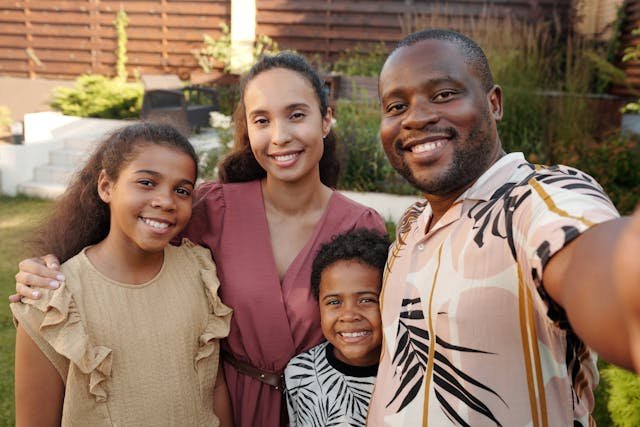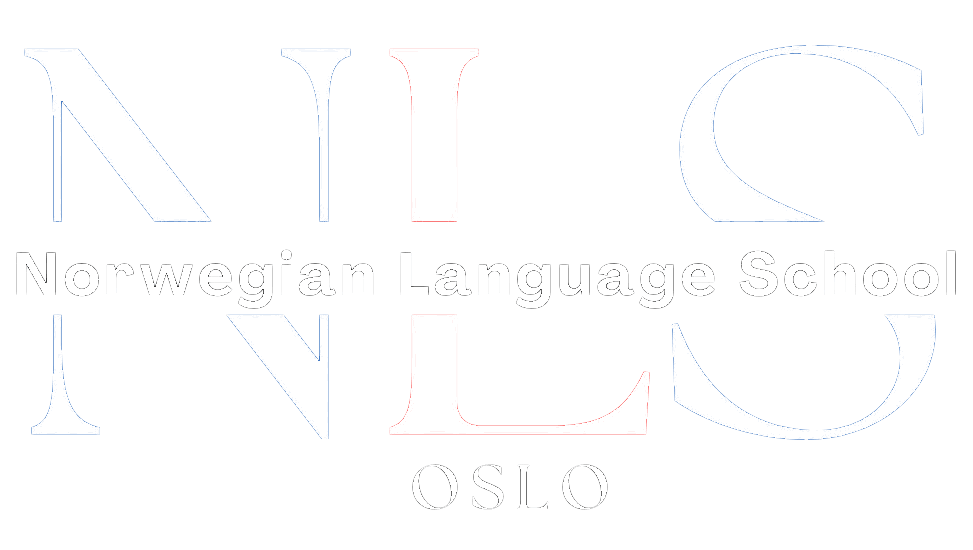

Top Norwegian Words for Citizenship Interview Success
If you’re preparing for a Norwegian citizenship interview, you’ve likely encountered the language challenges that come with it. Mastering the Norwegian language, especially for a formal setting like a citizenship interview, involves more than just casual conversations. The interview tests your ability to communicate effectively and understand the cultural context of Norway. Knowing the right vocabulary is essential. In this article, we’ll explore some of the top Norwegian words and phrases that will help you navigate your citizenship interview with confidence.
1. Grunnlov (Constitution)
One of the key topics in a Norwegian citizenship interview is understanding Norway’s political and legal framework. The word “grunnlov” refers to the Constitution of Norway, which lays the foundation for the country’s laws and government structure. Be prepared to discuss aspects of the Norwegian Constitution and understand how it influences daily life and governance.
Example:
“Den norske grunnloven ble vedtatt på Eidsvoll i 1814.”
(The Norwegian Constitution was adopted at Eidsvoll in 1814.)
2. Demokrati (Democracy)
Norway is a constitutional monarchy with a strong democratic tradition. During your interview, you might be asked about your understanding of democracy, which in Norwegian is “demokrati.” It’s important to understand not only the meaning but also how democracy functions in Norway, including voting rights and citizen participation in decision-making processes.
Example:
“Demokrati er en viktig del av det norske samfunnet.”
(Democracy is an important part of Norwegian society.)
3. Samfunn (Society)
The word “samfunn” means society, and it is often used in discussions about how Norway functions as a collective. Questions related to social responsibilities, contributions to the community, and understanding Norwegian values may come up during the interview. Being able to discuss “samfunn” intelligently will demonstrate your knowledge of Norway’s social structure.
Example:
“Det norske samfunnet verdsetter likestilling og inkludering.”
(Norwegian society values equality and inclusion.)
4. Rettigheter (Rights)
Knowing your rights and responsibilities as a Norwegian citizen is crucial for the interview. The word “rettigheter” means rights, and you may be asked about the rights of citizens in Norway, such as the right to vote, freedom of speech, and equality under the law.
Example:
“Alle norske borgere har like rettigheter, uavhengig av kjønn eller bakgrunn.”
(All Norwegian citizens have equal rights, regardless of gender or background.)
5. Plikter (Duties/Responsibilities)
Just as important as knowing your rights is understanding your duties, or “plikter.” Citizenship interviews often explore how well you comprehend the responsibilities of being a citizen, including obeying laws, paying taxes, and contributing to society.
Example:
“Som norsk borger har du plikt til å følge lovene og betale skatt.”
(As a Norwegian citizen, you have the duty to follow the laws and pay taxes.)
6. Valg (Election)
The word “valg” refers to elections, which are a core part of any democracy. You should be prepared to discuss the Norwegian election process, voter participation, and the role of elections in a democratic society. Understanding how elections work in Norway shows that you are informed about one of the most critical aspects of citizenship.
Example:
“Valgdagen i Norge er alltid på en mandag.”
(Election day in Norway is always on a Monday.)
7. Likestilling (Equality)
Norway prides itself on being one of the most egalitarian societies in the world. “Likestilling” refers to equality, particularly gender equality, which is an important value in Norwegian culture. During your interview, you may be asked about your views on equality and how you plan to contribute to maintaining this value in society.
Example:
“Likestilling mellom menn og kvinner er grunnleggende i det norske samfunnet.”
(Equality between men and women is fundamental in Norwegian society.)
8. Miljø (Environment)
Norway is known for its commitment to environmental protection, and “miljø” is a word you’ll hear often. Discussions about Norway’s natural environment, conservation efforts, and sustainability policies may arise during the interview. Being able to speak about “miljø” issues shows your awareness of Norway’s dedication to preserving its natural beauty and resources.
Example:
“Miljøvern er en viktig del av norsk politikk.”
(Environmental protection is an important part of Norwegian politics.)
9. Arbeid (Work)
“Arbeid” means work, and it’s a crucial topic when discussing your integration into Norwegian society. Your interviewer may ask about your employment status, your understanding of workers’ rights, and how you plan to contribute to Norway’s economy. Work culture in Norway emphasizes a good work-life balance, and knowing how to discuss “arbeid” in this context will be beneficial.
Example:
“Jeg har arbeid som ingeniør i Oslo.”
(I have work as an engineer in Oslo.)
10. Skatt (Tax)
“Skatt” means tax, and it’s an integral part of life in Norway. The citizenship interview may touch on your understanding of the Norwegian tax system, how taxes are used to benefit society, and your responsibilities as a taxpayer. Norway has a high standard of living, which is partially funded through taxes, so knowing how to discuss “skatt” is important.
Example:
“Som norsk borger må du betale skatt til staten.”
(As a Norwegian citizen, you must pay taxes to the state.)
11. Helse (Health)
Healthcare, or “helse,” is another important topic in the citizenship interview. Norway has a robust public healthcare system, and understanding how it works is vital. You may be asked about your experiences with the healthcare system and your knowledge of how it operates in Norway.
Example:
“Det norske helsesystemet er finansiert av skattepenger.”
(The Norwegian healthcare system is funded by taxes.)
12. Skole (School)
Education, or “skole,” is a priority in Norway, and the system is known for its high quality. You might be asked about the Norwegian education system, particularly if you have children or plan to study. Knowing the word “skole” and being familiar with how schools function in Norway will be useful.
Example:
“Barn i Norge begynner på skole når de er seks år gamle.”
(Children in Norway start school when they are six years old.)
13. Kultur (Culture)
“Cultural understanding is essential for integration into Norwegian society. You may be asked to discuss Norwegian culture, which includes traditions, holidays, and social norms. The word “kultur” encompasses these elements, and being able to speak about Norwegian cultural practices will demonstrate your readiness to become a citizen.
Example:
“17. mai er en viktig del av norsk kultur.”
(May 17th is an important part of Norwegian culture.)
14. Familie (Family)
The concept of family, or “familie,” is central to Norwegian life. You might be asked about your family structure and how you and your family plan to integrate into Norwegian society. Understanding how to discuss family in the context of Norwegian values is important, as family rights and obligations can come up during the interview.
Example:
“Familien min og jeg bor i Oslo.”
(My family and I live in Oslo.)
15. Frihet (Freedom)
“Frihet” means freedom, and it’s a key concept in Norway’s democratic society. You may be asked about your understanding of individual freedoms in Norway, such as freedom of speech, religion, and expression. These freedoms are protected by law, and knowing how to discuss them will show that you are aware of your rights as a future citizen.
Example:
“Frihet til å uttrykke seg selv er en grunnleggende rettighet i Norge.”
(Freedom to express oneself is a fundamental right in Norway.)
16. Integrering (Integration)
“Integrering” refers to integration, and this will undoubtedly be a central theme in your interview. The Norwegian government emphasizes the importance of immigrants integrating into society by learning the language, understanding the culture, and contributing to the community. You should be prepared to discuss how you are integrating into Norwegian society and what steps you are taking to become a fully active participant.
Example:
“Integrering er viktig for å bli en del av det norske samfunnet.”
(Integration is important for becoming part of Norwegian society.)
17. Rettferdighet (Justice/Fairness)
The word “rettferdighet” means justice or fairness. Norway places a high value on fairness in all aspects of life, from the legal system to everyday social interactions. Demonstrating an understanding of “rettferdighet” and how it applies to life in Norway will reflect your awareness of key societal values.
Example:
“Rettferdighet er en viktig verdi i det norske rettssystemet.”
(Fairness is an important value in the Norwegian legal system.)
18. Norsk (Norwegian)
Finally, the word “norsk” simply means Norwegian, and it will come up often as you discuss the language, culture, and people. Being able to speak Norwegian fluently is one of the key requirements for citizenship, so practicing your language skills and expanding your vocabulary is essential.
Example:
“Jeg lærer norsk på en språkskole i Oslo.”
(I am learning Norwegian at a language school in Oslo.)
Join Our Norwegian Classes at NLS Norwegian Language School in Oslo
To further improve your Norwegian language skills, especially for important occasions like the citizenship interview, consider enrolling in group classes at NLS Norwegian Language School in Oslo. Our expert teachers and structured curriculum will help you become proficient in Norwegian, focusing on the vocabulary and language skills essential for your success.
Conclusion
Mastering these Norwegian words and phrases will give you a significant advantage during your citizenship interview. Not only will you be able to understand the questions better, but you’ll also be able to articulate your thoughts clearly and effectively, demonstrating your readiness to become a Norwegian citizen.
To ensure that you are fully prepared for the language challenges of the citizenship process, consider enrolling in classes at NLS Norwegian Language School. We offer group Norwegian classes designed to help you improve your language skills and gain the confidence needed to succeed in your citizenship interview.

Norwegian A1-A2
Course Overview The Norwegian A1-A2 course is an online program focused on teaching essential Norwegian grammar and vocabulary. It includes a variety of materials and topics, with opportunities to interact with a Norwegian teacher entirely online. Curriculum Highlights The course covers key areas such as grammar and vocabulary and topics such as family, daily life, education, work, traditions, and leisure activities. Who Should Enroll? This course is perfect for beginners or those at the A1 or A2 levels who want to improve their Norwegian skills. What You Get Access to the full Norwegian A1-A2 course. A monthly 1-hour online conversation with a teacher. Many written and oral assignments. Comprehensive information on Norwegian grammar, Norwegian vocabulary and how to use them, important sentence structures, etc. Tips on additional resources to further enhance your Norwegian learning.
0 students enrolled
Last updated Dec 10th, 2024
If you want to learn Norwegian, you can register for classes here. We look forward to hearing from you and helping you become fluent in Norwegian.






